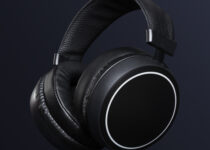Do headphones have radiation?
In an era dominated by technological advancements and a perpetual quest for convenience, the use of headphones has become ubiquitous in our daily lives.
Whether we’re commuting, working out, or simply enjoying our favorite tunes, headphones offer a personalized audio experience.
However, with the growing concern over the potential health impacts of constant exposure to various electronic devices, a question has emerged in the minds of many: Do headphones have radiation?
So, without further ado, let’s explore the facts and fiction surrounding headphone radiation in this enlightening journey.
What Is Radiation?
Radiation is the emission and transmission of energy through waves or particles.

It can originate from natural sources like the sun or artificial sources such as X-ray machines.
There are two main types: ionizing (high-energy, with potential health risks) and non-ionizing (lower energy, generally considered safe).
While radiation is vital in medical procedures, energy generation, and communication, proper safety measures are crucial to mitigate potential hazards.
Read: Can noise-cancelling headphones help tinnitus?
Do Headphones Have Radiation?
Headphones, whether wired or wireless, do emit a form of radiation known as electromagnetic fields (EMFs).
However, it’s important to clarify that the radiation produced by headphones falls into the category of non-ionizing radiation, which is generally considered safe.
Non-Ionizing Radiation:
Non-ionizing radiation lacks the energy required to ionize atoms or molecules, meaning it doesn’t have the potential to cause cellular damage or alter DNA, as opposed to ionizing radiation like X-rays.
The non-ionizing nature of the radiation emitted by headphones makes it less likely to pose significant health risks.
Wireless vs. Wired Headphones:
Wireless headphones, often a source of concern, utilize radiofrequency technology for communication.
However, scientific studies and regulatory compliance ensure that the radiofrequency radiation emitted by these devices is well below levels known to cause harm.
Wired headphones, on the other hand, do not emit any significant radiation as they don’t rely on wireless communication.
Read: Can wearing headphones cause headaches?
Supporting FDA Study:
The U.S. Food and Drug Administration (FDA) provides valuable insights into the safety of radiofrequency radiation, particularly in the context of cell phones and wireless devices.
Their study, available at FDA Radiofrequency Radiation and Cell Phones, reinforces the understanding that low levels of non-ionizing radiation are unlikely to cause harm when used according to established guidelines.
Are Headphones Harmful?
Current scientific evidence suggests that the low levels of non-ionizing radiation produced by headphones are unlikely to cause harm.

The concerns surrounding headphone radiation often stem from misunderstandings and myths.
It’s crucial to differentiate between non-ionizing radiation from everyday devices and ionizing radiation associated with more potent sources.
FAQs: Do headphones have radiation?
What headphones do not emit radiation?
All electronic devices, including headphones, emit a minimal amount of non-ionizing radiation.
However, wired headphones typically have lower radiation levels compared to wireless counterparts.
If you want to minimize exposure, choosing wired headphones is a practical option.
Is there radiation in headsets?
Yes, headsets, whether wired or wireless, do emit a form of non-ionizing radiation known as electromagnetic fields (EMFs).
The radiation levels are generally considered safe, adhering to established regulatory standards.
Are headphones safer than earbuds?
Both headphones and earbuds fall under similar safety considerations, emitting non-ionizing radiation.
The safety largely depends on individual preferences and usage habits. Some people find over-ear headphones or wired earphones to be more comfortable and may opt for them to minimize proximity to the head.
How can I reduce Bluetooth radiation?
To reduce Bluetooth radiation exposure:
- Limit prolonged use: Minimize continuous exposure to Bluetooth devices.
- Choose low-radiation devices: Opt for Bluetooth devices with lower emission levels.
- Maintain distance: Keep Bluetooth devices at a reasonable distance from your body when not in use.
- Use wired connections: Consider using wired headphones or earphones instead of relying solely on Bluetooth technology.
Conclusion
In conclusion, the question that often echoes in the minds of headphone users is, “Do headphones have radiation?”
While we’ve explored the reality of headphone radiation, it’s crucial to maintain a balanced perspective.
Armed with knowledge, we can enjoy our audio experiences responsibly, knowing that the harmony between technology and health is not merely a myth.



